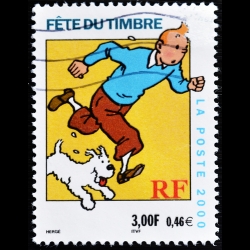 The term good Samaritan stems from the bible – a person who gratuitously gives help to those in distress. During the Olympics, foundation doctors cannot apply to be medical volunteers; but you can provide assistance by way of a good Samaritan act. Charlotte Hudson explains.
The term good Samaritan stems from the bible – a person who gratuitously gives help to those in distress. During the Olympics, foundation doctors cannot apply to be medical volunteers; but you can provide assistance by way of a good Samaritan act. Charlotte Hudson explains.
The Olympic Games is just around the corner and more than 5,000 doctors have already offered their services as medical volunteers to work at the event, to attend to the millions of spectators, press and associated workers who will be present.
Foundation doctors who were hoping to volunteer as so-called Games Makers have been turned away, however, as they are not eligible to volunteer in a medical capacity.
Dr Iain Barclay, Head of Medical Risk and Underwriting at MPS, said that MPS has been approached by a number of foundation doctors who were hoping to volunteer, but unfortunately, owing to statutory restrictions, F1 and F2 grade doctors are unable to work at the Olympics as it is not an approved practice setting.
However, this does not mean that should a medical emergency arise that foundation doctors should not provide assistance by way of a good Samaritan act.
What is a good Samaritan act?
A good Samaritan act is one where a doctor provides medical assistance, free of charge, in a bona fide medical emergency where they are not on duty. Foundation doctors may attend the Games as spectators, and assisting a fellow spectator would be an example of such an act.
What should you do?
When called into action whilst off duty, you must remember to:
- Only intervene if the situation is an emergency
- Assess your own competence in handling the situation – eg, you may be under the influence of alcohol – and proceed accordingly
- Make a full clinical record after treatment, and give your contact details to the appropriate official.
If you encounter a situation that would normally be beyond your competence, you may still be able to help. There will be millions of people at the Games and any situation that is beyond your competence may still benefit from your input, to a degree. For example, you can use your clinical skills to:
- Take a history
- Make an examination to reach a preliminary assessment
- Give an indication of the likely differential diagnosis and suggest options for the management of the situation pending arrival of support.
In the unlikely event that legal proceedings follow a good Samaritan act, MPS members are entitled to apply for assistance, no matter which country the legal proceedings are commenced in; this is important as many spectators will be drawn from around the world.
Whilst London 2012 is a once in a lifetime experience, the medicolegal risks remain the same as any other clinical encounter. By following the above advice, you will not only safeguard yourself against the risks, but you will contribute to making the 2012 Olympics a safe and enjoyable event.
Read Olympic Dilemmas in the latest issue of MPS Casebook – http://www.medicalprotection.org/uk/casebook-may-2012/olympic-dilemmas



